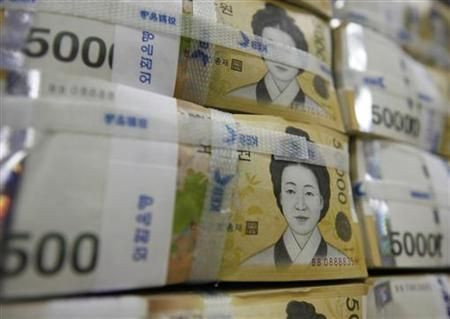South Korea’s Trade Surplus Drops To $2.03 Billion In December

South Korea’s trade surplus fell in December compared to that in the previous month, indicating that the soft global demand continues to weigh down on the economic growth of the country.
According to the data released Tuesday by the Korea National Statistical Office, the country’s trade surplus, which measures the difference in value between exported and imported goods and services over the reported period, dropped to $2.03 billion in December, down from $4.38 billion in November.
Exports slumped 5.1 percent to $45.1 billion in December from a 3.8 percent rise to $47.8 billion in November. Imports fell 5.3 percent to $43.1 billion in December from a 0.9 percent rise to $43.4 billion in November.
This report comes after it was revealed Monday that South Korea's consumer price inflation rose at a slower rate than expected in December, indicating that the country’s inflationary pressures are declining to provide room for further monetary easing policy measures required to boost economic growth.
According to the data released Monday by the Korea National Statistical Office, the country’s CPI, which measures the change in the price of goods and services from the perspective of the consumer, rose 1.4 percent in December, down from 1.6 percent increase in November and below the analysts’ expectation of 1.5 percent. The CPI, which is a key way to measure changes in purchasing trends and inflation, rose 0.2 percent in December compared to a 0.4 percent decline in November and below the analysts’ expectation of 0.3 percent.
Earlier this month, the Bank of Korea (BoK) announced its decision to keep the policy rate at 2.75 percent, withstanding the pressure from the market participants for additional stimulus measures to give a boost to the country's weakening economy.
The central bank has noted that the growth in the U.S. has lost momentum and that the euro zone economy is contracting, with weaker exports to the major economies in turn bringing a slower growth in the emerging Asian economy this year. At the same time, the BoK is expecting the economic slowdown to ease and the country’s economy to improve moderately.
Market players sense that the monetary policy should be loosened again sooner rather than later though the BoK has shown a preference for moving slowly.
© Copyright IBTimes 2024. All rights reserved.




















